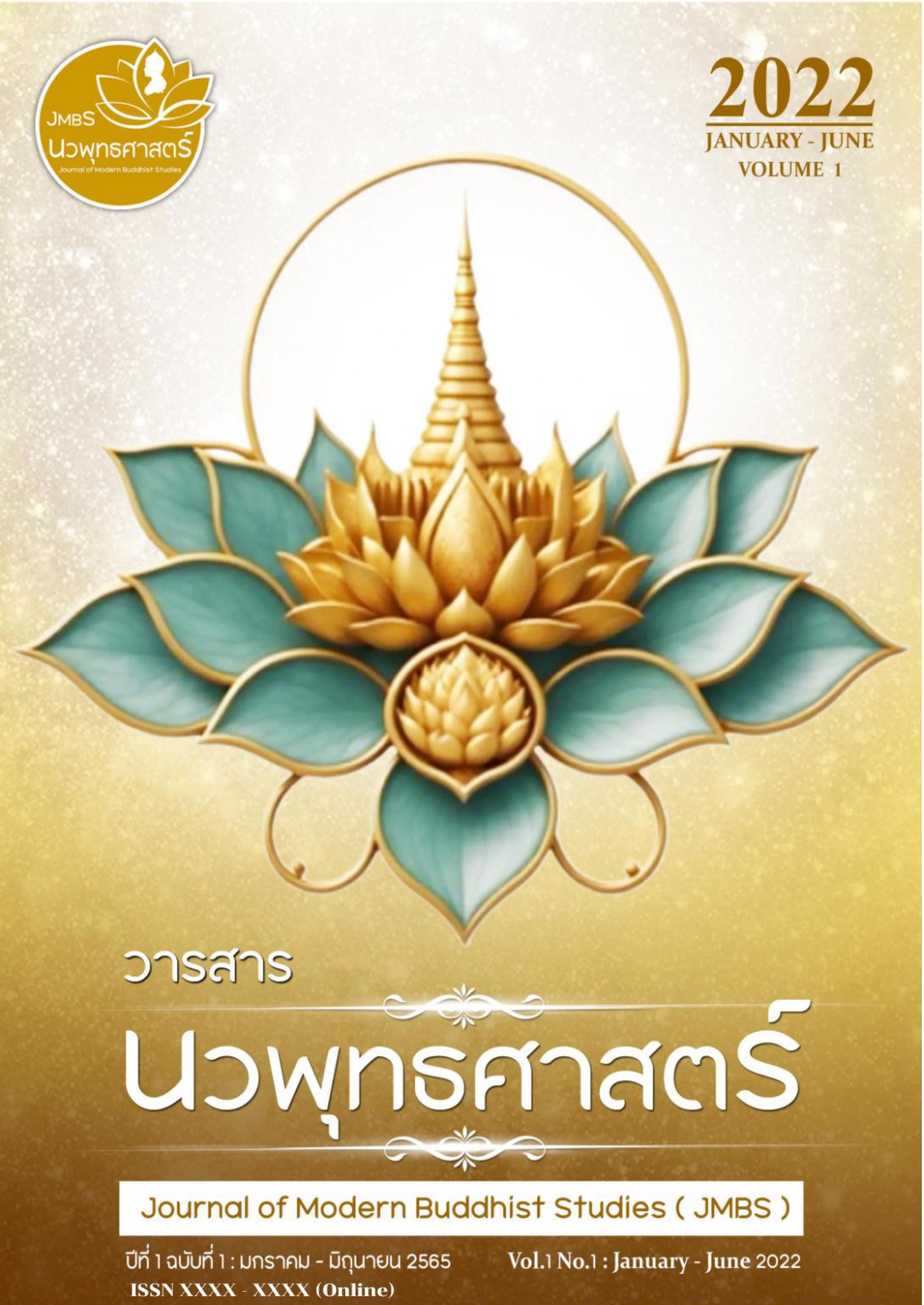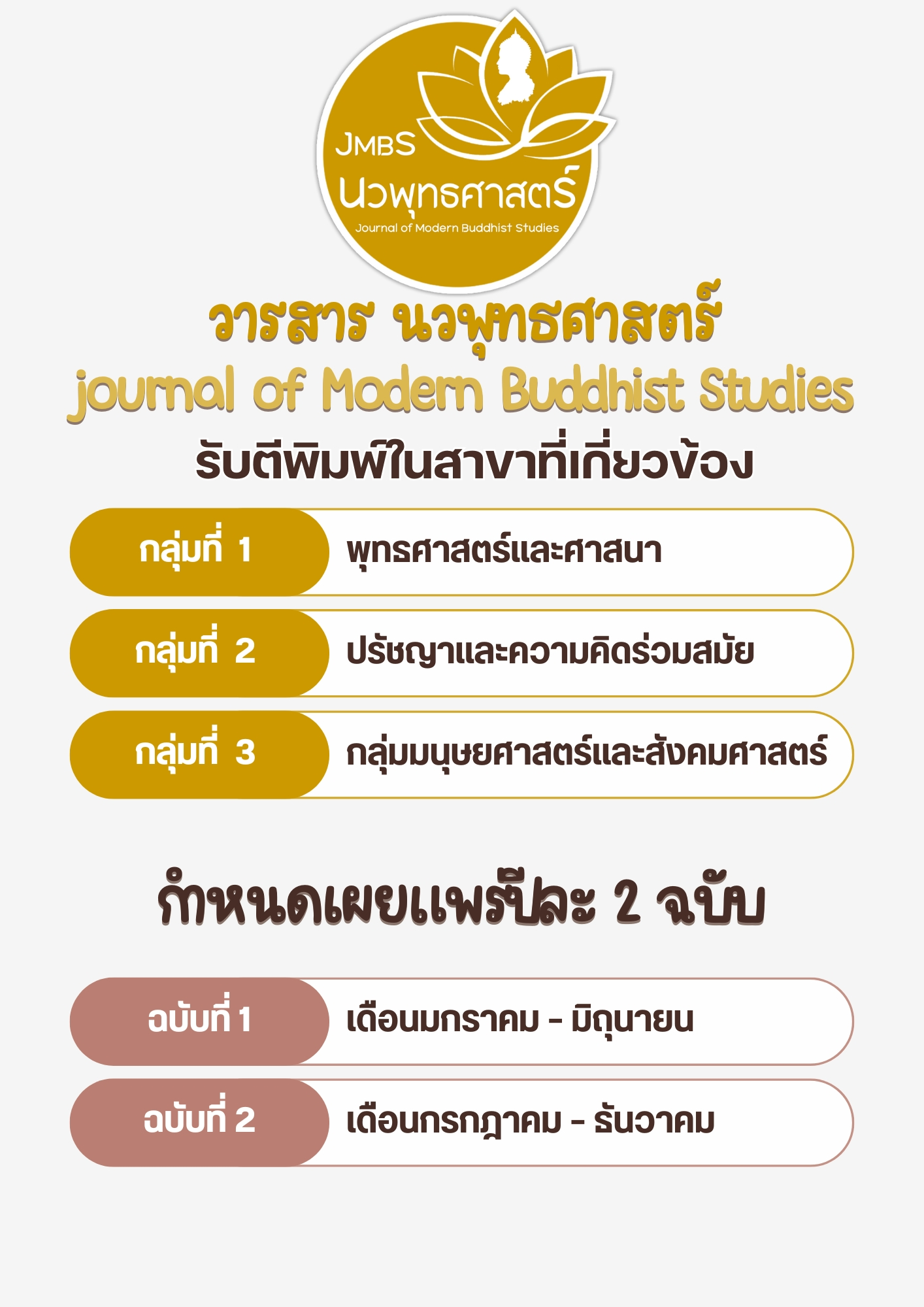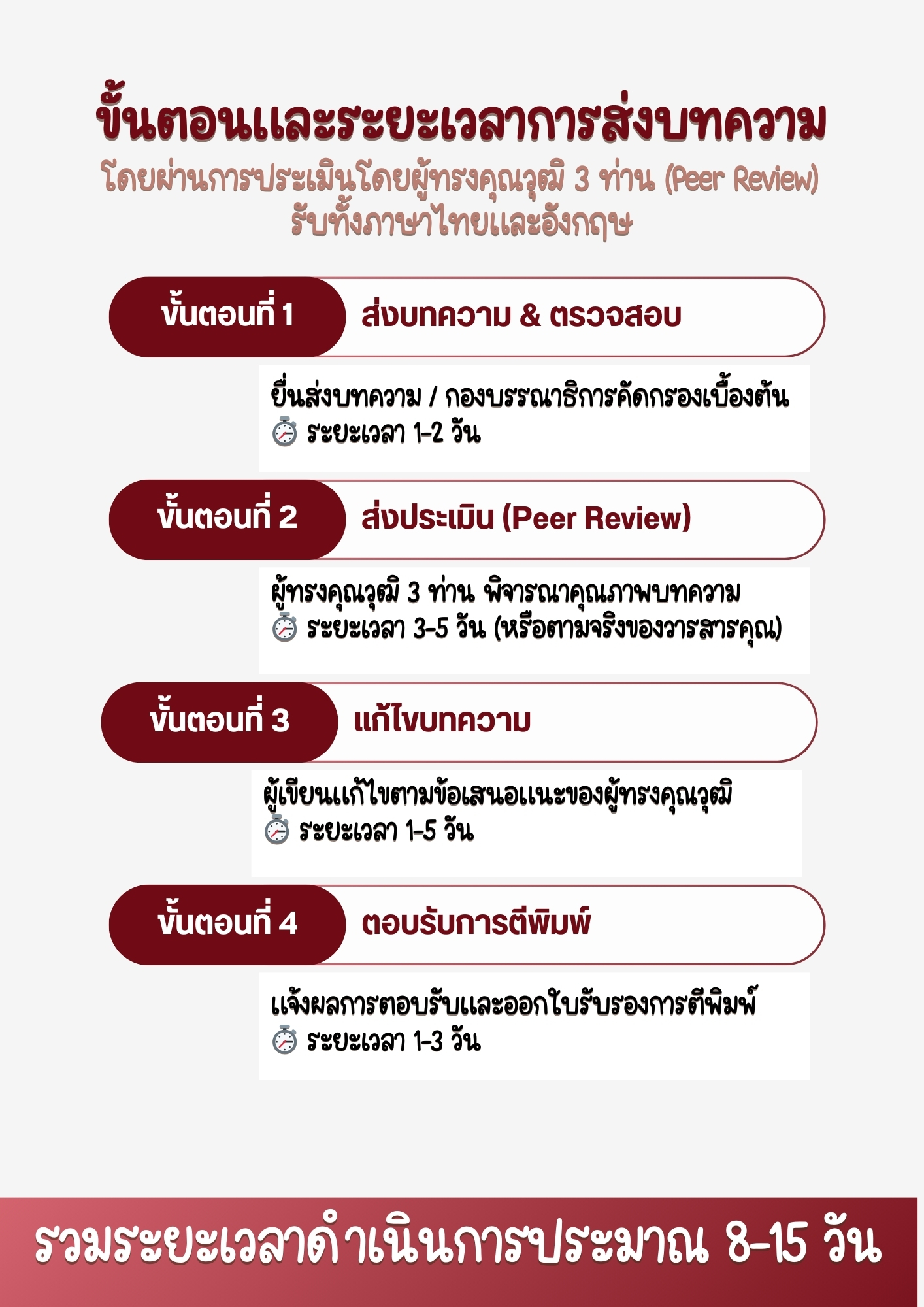BUDDHIST LEADERSHIP OF THE SANGHA TOWARDS A NEW ERA OF LEADERSHIP PROMOTION
Keywords:
Buddhist Leadership, Sangha, Creating New Generation LeadersAbstract
The world in the 21st century is facing changes in various dimensions that affect the environment, economy, society, politics, and technology. Thailand is facing changes in technology, society, and climate issues, causing organizations to adapt by having executives who can lead the organization through the changes. Buddhist leadership is a management approach that integrates Buddhist principles in terms of wisdom, goodness, and knowledge by applying the POSDC management process to create a balance between the organization and society through a Buddhist organizational culture that is virtuous and responsible towards the current society. The context of Buddhist ecclesiastical governance is important in governing and developing the temple in various dimensions, such as governance, religious education, the dissemination of religious teachings, and charity, including building relationships with people in the community by using the principles of self-development, management of residences, or helping laypeople. This type of integrated temple development is considered to create cooperation between the temple and the community. Therefore, the temple is the center of creating a highly developed society.
References
กฎมหาเถรสมาคม ฉบับที่ 24. (2541). ว่าด้วยการแต่งตั้งถอดถอนพระสังฆาธิการ หมวด 2 การแต่งตั้งพระสังฆาธิการ. แถลงการณ์คณะสงฆ์ เล่มที่ 86 ฉบับพิเศษ.
พงษ์เทพ สุขทนารักษ์. (2565). ความสำคัญของภาวะผู้นำทางการบริหารการศึกษา. [ออนไลน์]. แหล่งที่มา: https://www.gotoknow.org/posts/458910.
พระวิสุทธิภัทรธาดา. (2547). พระราชบัญญัติคณะสงฆ์และกฎมหาเถรสมาคม. กรุงเทพมหานคร:
โรงพิมพ์มหาจุฬาลงกรณราชวิทยาลัย.
พระสมศักดิ์ สุขทวีเลิศพงศ์ และวรเดช จันทรศร. (2561). ประสิทธิผลของการบริหารกิจการคณะสงฆ์.วารสารวิชาการมหาวิทยาลัยอิสเทิร์นเอเชีย. ปีที่ 8 ฉบับที่ 1 (มกราคม - เมษายน): 153 -163.
รัตติกรณ์ จงวิศาล. (2556). ภาวะผู้นำ. กรุงเทพมหานคร: สำนักพิมพ์แห่งจุฬาลงกรณ์มหาวิทยาลัย.
สมเด็จพระพุทธโฆษาจารย์ (ป. อ. ปยุตฺโต). (2546). ภาวะผู้นำ : ความสำคัญต่อการพัฒนาคน พัฒนาประเทศ. กรุงเทพมหานคร: ธรรมสภา.
สำนักงานพระพุทธศาสนาแห่งชาติ กองพุทธศาสนสถาน. (2563). คู่มือการประเมินมาตรฐานการพัฒนาวัด. กรุงเทพมหานคร: โรงพิมพ์สำนักงานพระพุทธศาสนาแห่งชาติ.
สุรเชษฐ์ หิรัญสถิต. สิทธิชัย แสงนิล และสุกัญญา แช่มช้อย. (2019). การส่งเสริมการเรียนรู้เพื่อเสริมสร้างภาวะผู้นำของประเทศญี่ปุ่น. Journal of Ratchathani Innovative Social Sciences. Vol.3 No.1 (January-March): 1-24.
Koontz Harold D. and Cyril O’Donnell. (1975). Principles of Management: An Analysis of Managerial Functions. New York: McGraw–Hill.

Downloads
Published
How to Cite
Issue
Section
License

This work is licensed under a Creative Commons Attribution-NonCommercial-NoDerivatives 4.0 International License.







